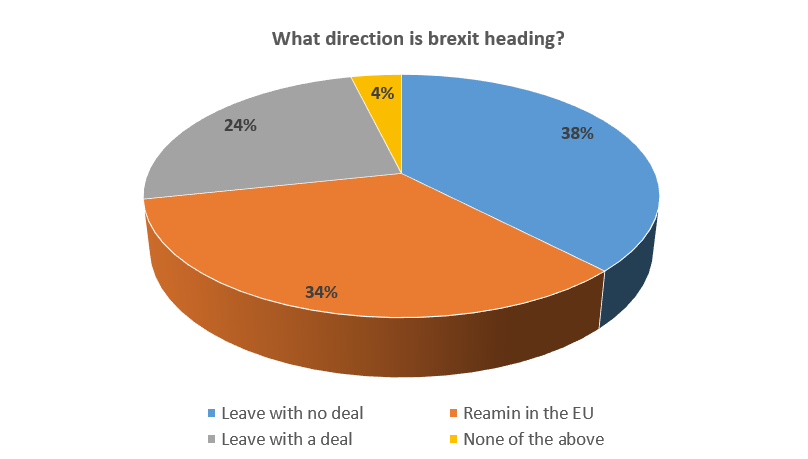
In a Brexit poll we conducted in mid-December, respondents felt that remaining in the EU was the most likely outcome, closely followed by 'no deal'. But as the clock ticks ever closer to 11pm on March 29th - and with no realistic deal in sight - those results have been flipped on their head. Engineer readers now believe that leaving the EU with 'no deal' is the most likely outcome, garnering 38 per cent of the vote. Just over a third (34 per cent) feel that the UK will remain in the EU, with around a quarter (24 per cent) feeling Theresa May will get some form of deal agreed by both sides. Only 4 per cent backed the 'none of the above' option.
As we write, the prime minister is en route to Northern Ireland in an attempt to ease fears of a return to a hard border there. But if the UK leaves the customs union and single market, it is difficult to see how a hard border can be avoided. Indeed, Theresa May herself said as much when she visited County Down as home secretary just before the referendum in June 2016.
"If we are out of the European Union with tariffs on exporting goods into the EU, there would have to be something to recognise that between Northern Ireland and the Republic of Ireland," May told the BBC.
"And if you pulled out of the EU and came out of free movement, then how could you have a situation where there was an open border with a country that was in the EU and had access to free movement?"
And herein lies the crux. The prime minister has painted herself into a corner with incompatible Brexit red lines that cannot all be met. And with 52 days left before the UK is due to leave the EU, she has now set up a working group to investigate the infamous 'alternative arrangements' that will somehow magically square the circle. But this is a road already travelled by both the EU and UK during the negotiation period, with no success. More to the point, the much-maligned backstop only comes into play if 'alternative arrangments' can't be found during the transition period. If Brexiteers are so confident in these arrangements being implemented, why do they object so strenuously to the insurance policy of the backstop?
The fact that just 24 per cent of readers believe a deal will now be achieved reflects the intractability of the situation, and it is no surprise that a majority now believe the UK will leave without a deal. Whether this will be allowed to happen by parliament and/or the government remains to be seen, and there will no doubt be more twists and turns as the cliff-edge of March 29th draws ever closer.
The comments section will remain open for the debate to continue. As ever, we recognise that this is a highly contentious topic. We ask our readers to keep their comments civil and respectful below the line. The Engineer's comment guidelines can be found here.





Project to investigate hybrid approach to titanium manufacturing
What is this a hybrid of? Superplastic forming tends to be performed slowly as otherwise the behaviour is the hot creep that typifies hot...